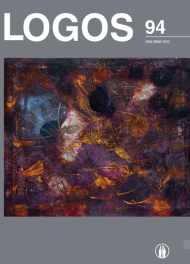Brandžiųjų Viduramžių Scholastinė Filosofija
Scholastic Philosophy in the High Middle Ages
Author(s): Dalia Marija StančienėSubject(s): Metaphysics, Social Philosophy, Philosophy of Middle Ages, Existentialism
Published by: Visuomeninė organizacija »LOGOS«
Keywords: high middle ages; scholastic philosophy; acculturation; metaphysics; being; concept; thinking;
Summary/Abstract: The article analyzes the process of acculturation, which significantly enriched Latin philosophy during the High Middle Ages. Adaptation of Greek thinking in Western Europe was associated with the translation of Syrian and Arabic sources. The 13th century universities absorbed an Arabized Hellenistic heritage and combined it with Christian tradition. This combination lifted scholasticism to a philosophical level. Scholastic philosophy was shaped as a specific way of thinking with rigorous logical structure. Philosophical and theological education was based upon the methods of meditatio and lectio. The study of being as the subject of metaphysical speculations played a leading role in the scholastic method. It was based on the supposition that being is accessible to natural reason. Scholastic philosophy admitted that universals were present not only in human mind but also in the divine intellect and beings.
Journal: LOGOS - A Journal of Religion, Philosophy, Comparative Cultural Studies and Art
- Issue Year: 2018
- Issue No: 94
- Page Range: 55-62
- Page Count: 8
- Language: Lithuanian

